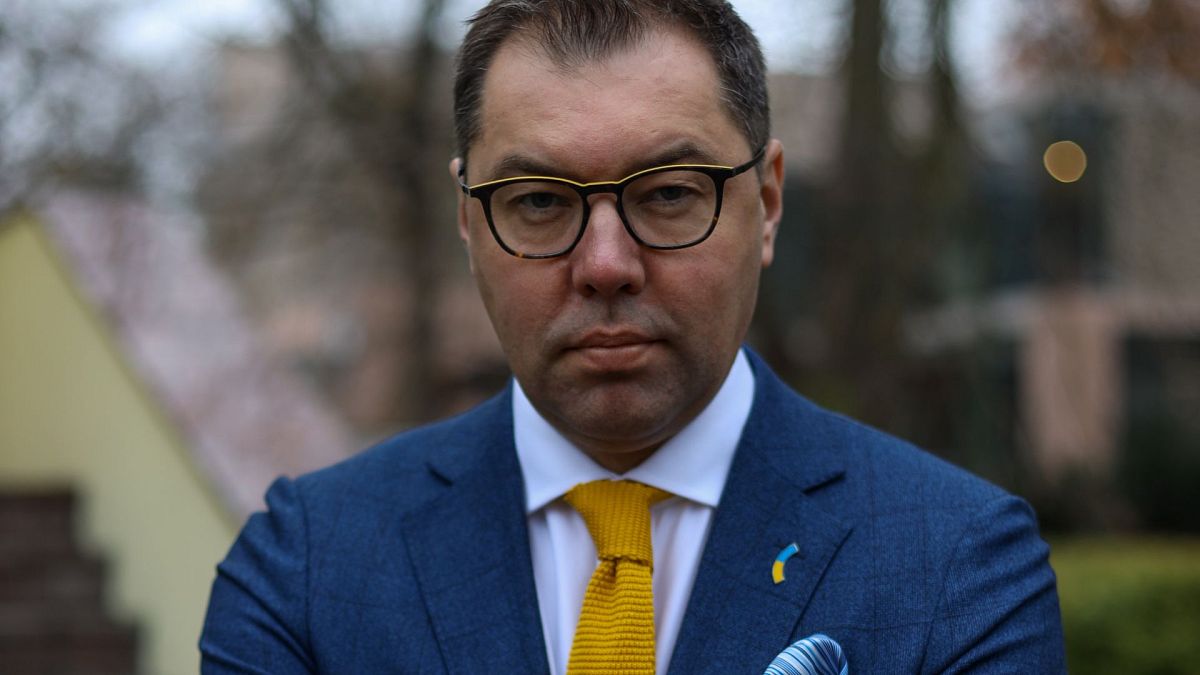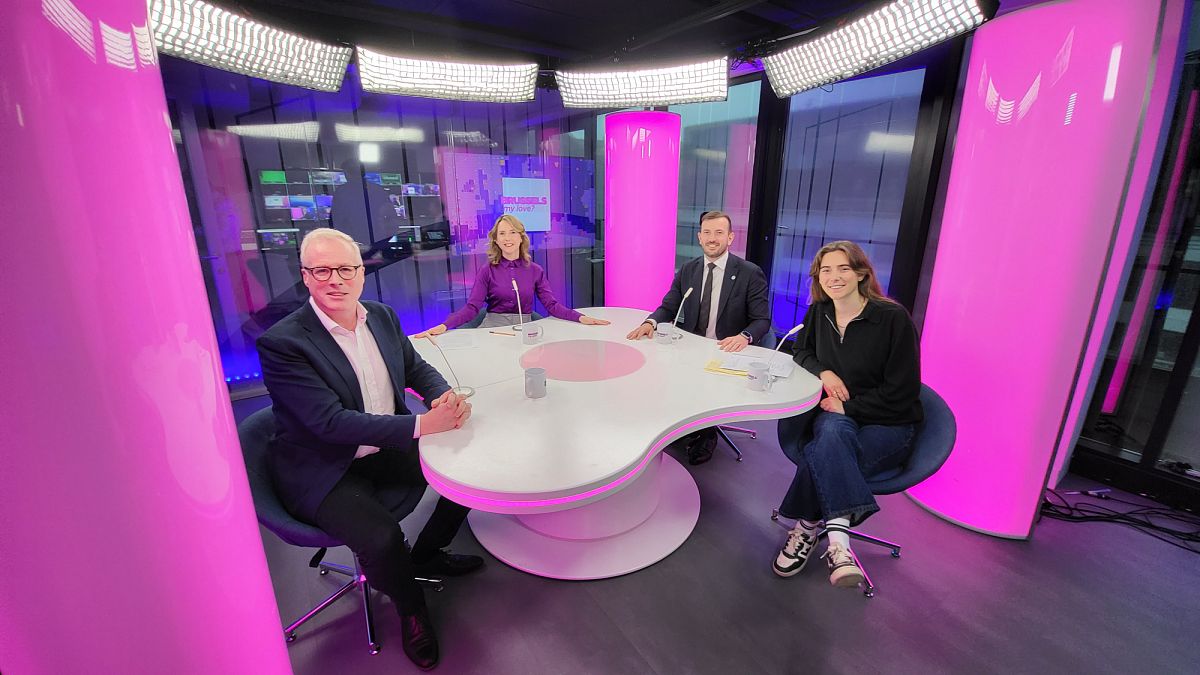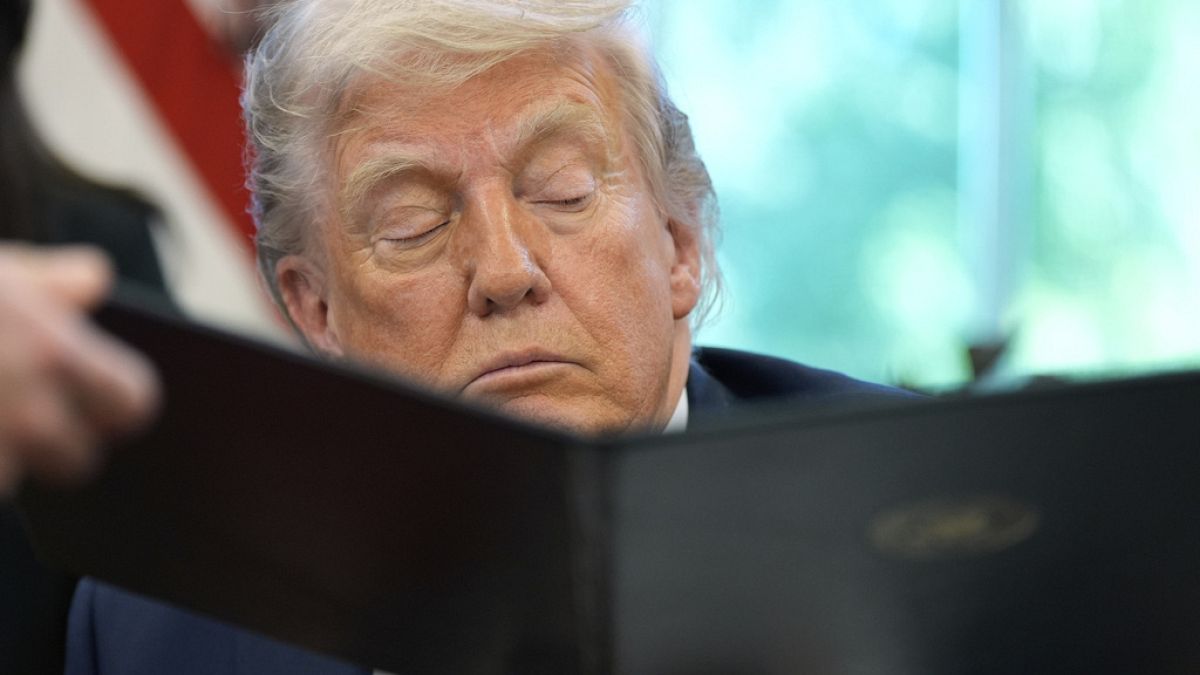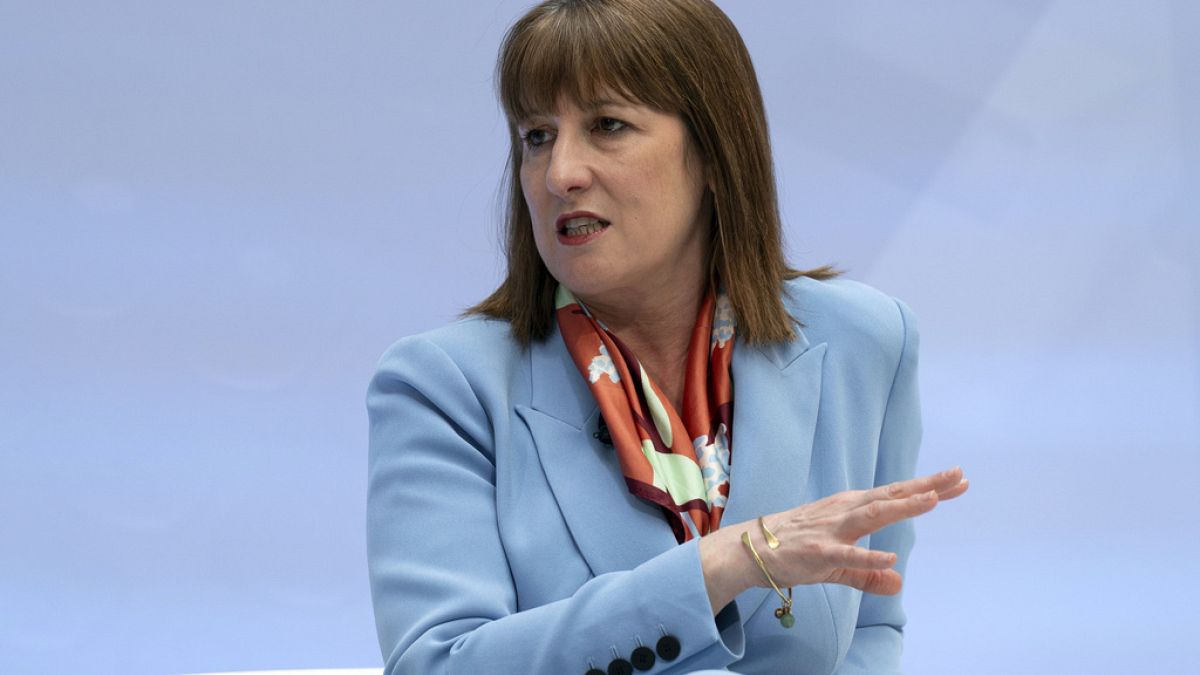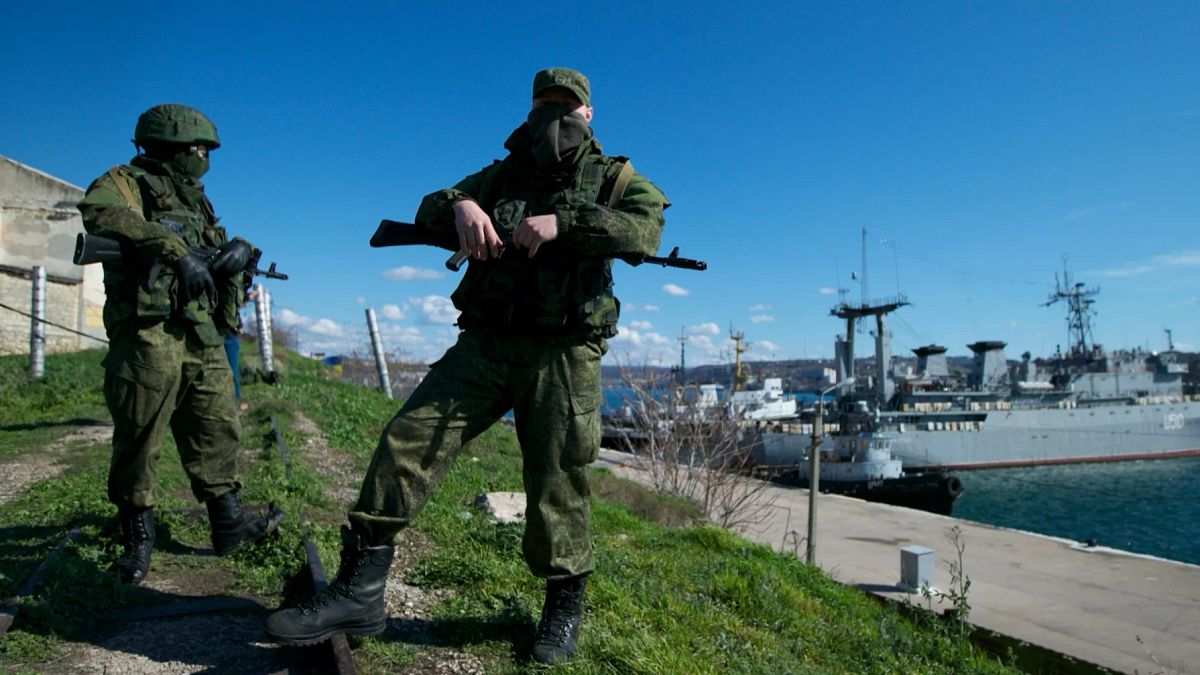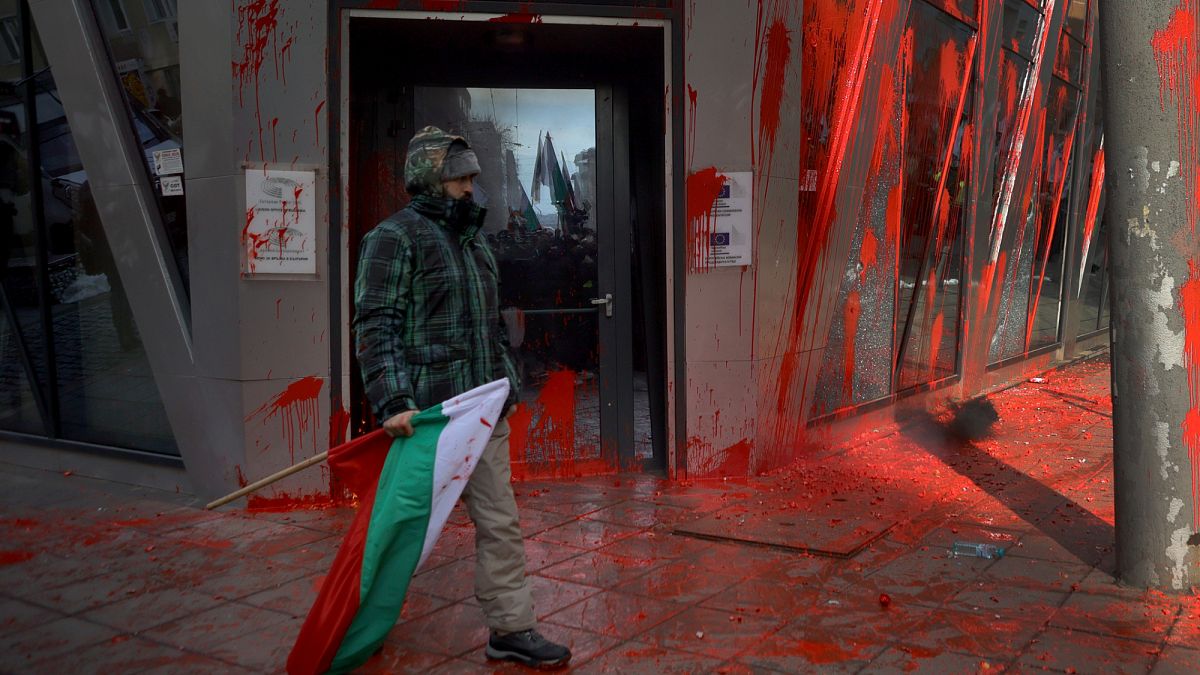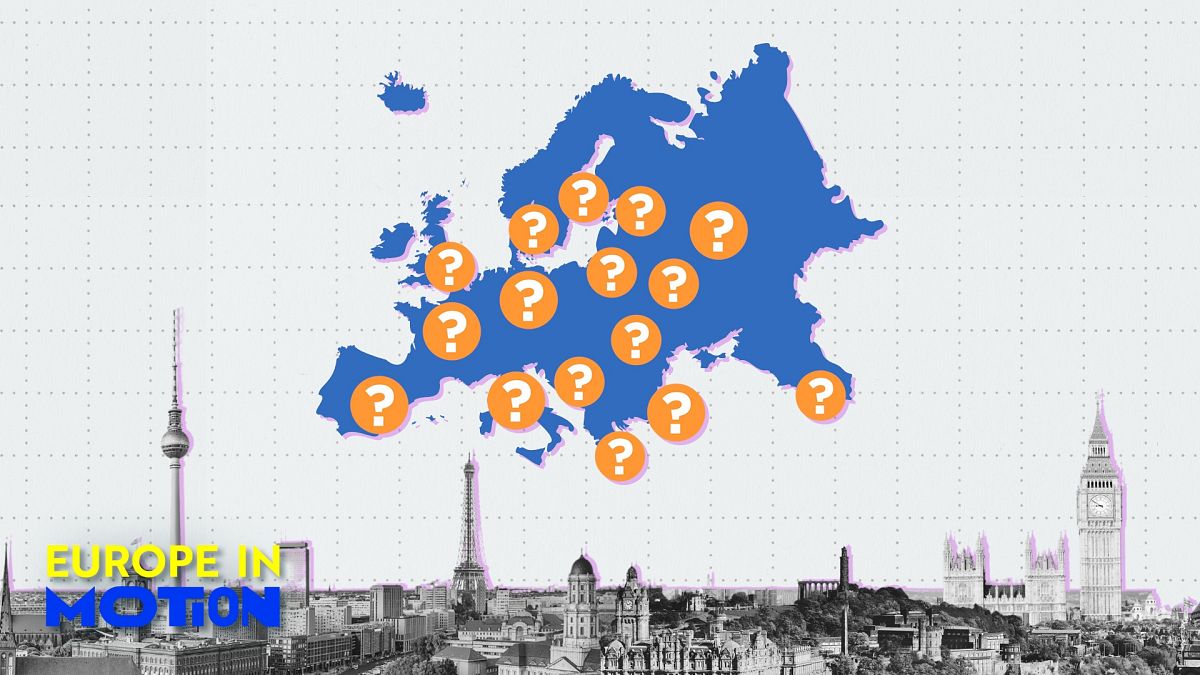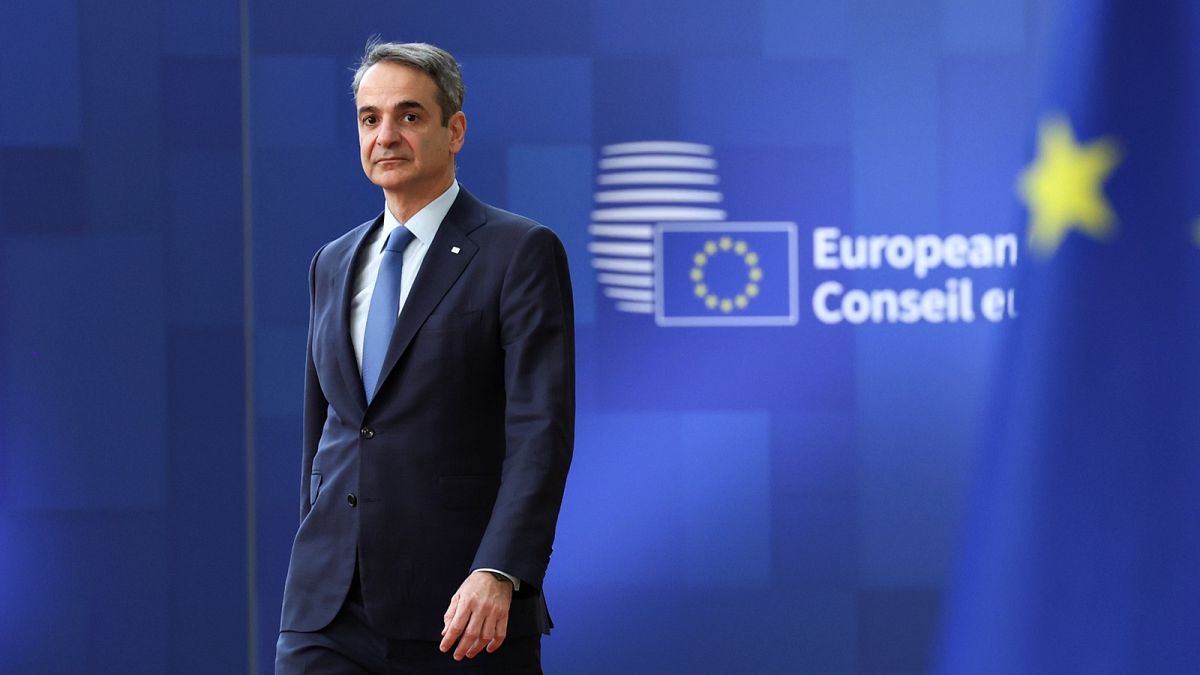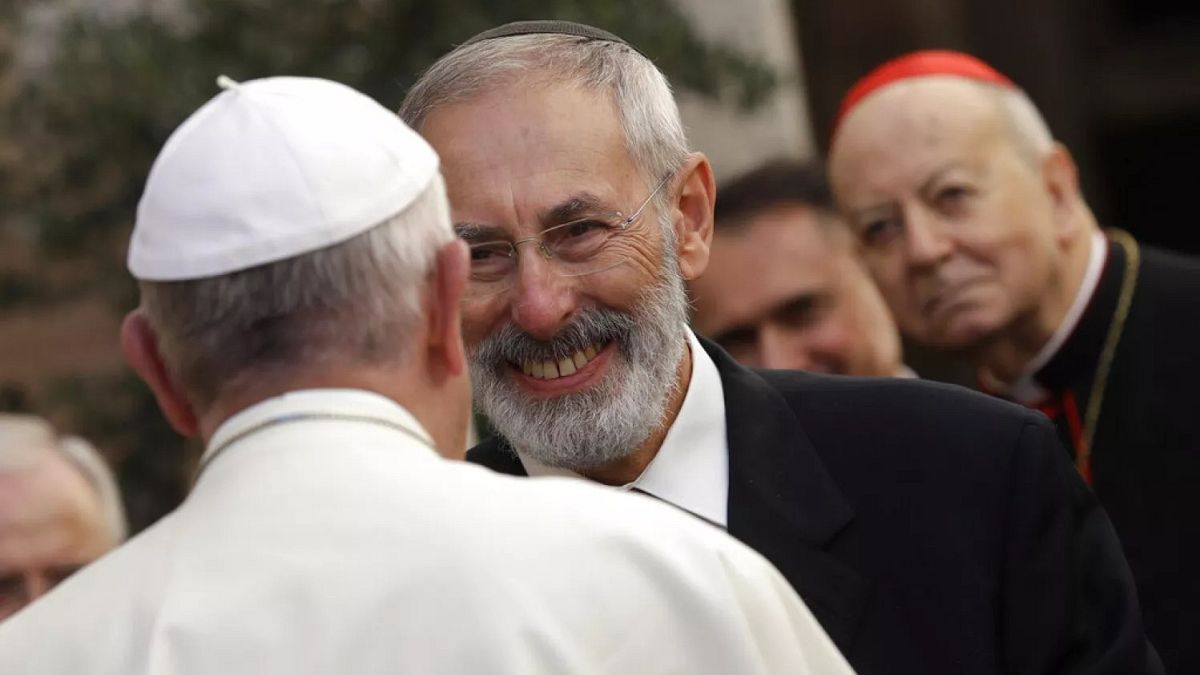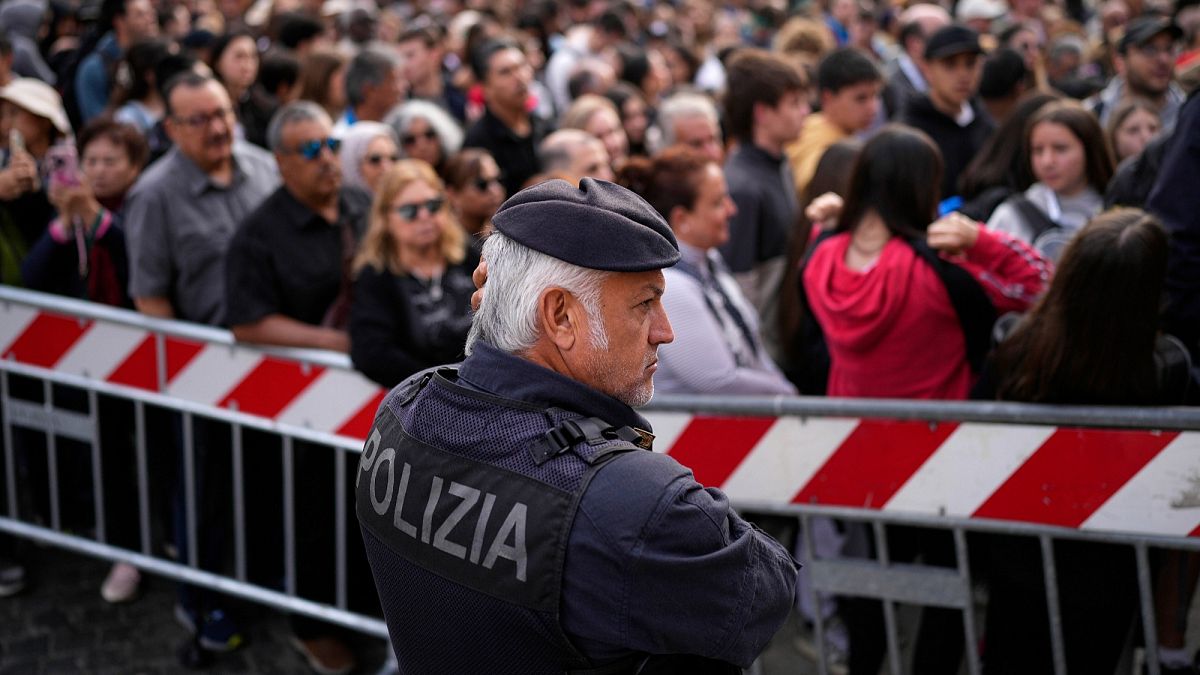Ukraine’s ambassador to Germany, Oleksii Makeiev, spoke to Euronews about Ukraine’s role in the German election campaign and what he says is a lack of political courage.
Germany’s election is less than two weeks away, with topics like migration dominating debates. But one issue seems to have been somewhat overlooked in recent weeks: Russia’s full-scale invasion of Ukraine.
Since the start of the full-scale war, Germany has pledged to stand firmly by Ukraine’s side, providing military, financial, and humanitarian aid.
In the first TV debate between SPD chancellor candidate Olaf Scholz and Friedrich Merz of the CDU, however, Ukraine played a secondary role behind topics such as migration and domestic security. While Germany’s support was emphasised, both ruled out the country’s NATO membership during the ongoing war.
Euronews sat down with Ukraine’s ambassador to Germany, Oleksii Makeiev, at the Ukrainian embassy in Berlin to ask him to assess how Germany stands by Ukraine, the merits of using the term ‘hybrid warfare’ — and why the war should matter more in the run-up to the snap elections on 23 February.
Euronews: The grim milestone of three years since Russia started its full-scale invasion of Ukraine is only a few weeks away. How has Germany progressed in these three years and does Germany really stand behind Ukraine?
Makeiev: I’ve been the ambassador to Germany since October 2022, and I’d say Germany has come a long way in these years. We still remember the 5,000 helmets and the widespread restraint across all political parties.
Now, two and a half years later, Germany has become our second most important and second-largest military supporter. My president, Volodymyr Zelenskyy, recently said that 16 per cent of our military aid comes from Germany.
That has been my message from the start: every German can be proud of what the country has done so far.
A broad consensus has long been established among the democratic parties that supporting us Ukrainians is in Germany’s interest. With few exceptions, almost all politicians say Ukraine must be enabled to win this war in order to achieve a just peace.
A recent survey shows 67 per cent of Germans still support arms deliveries and military aid. This proves that the issue remains an important one for voters.
Euronews: Looking at the election campaign right now, that doesn’t seem to be the case, though. In my point of view, support for Ukraine seems to have faded into the background.
Makeiev: In this short election campaign, some politicians may think it’s far too complicated to talk about war and peace.
But it was a revelation for me when the Wahl-O-Mat (an online tool that has been helping voters make election decisions run by Germany’s Federal Agency for Civic Education) was launched, and the very first question was about supporting Ukraine.
This is a topic that only courageous and responsible politicians are willing to address. If we consider the interests of German voters and the political support among democrats, it becomes clear how much of a threat Russia poses to the security of Germany, Europe, and the free world. That’s why it should be part of the election debate.
And, of course, the link to migration exists as well. What triggered the arrival of over a million Ukrainians in Germany? It was Russia’s war. So stopping this war is necessary to curb migration.
The Kiel Institute for the World Economy has made it clear that if Germany were to stop supporting Ukraine and leave it to fend for itself, it would be 10 to 20 times more costly.
These are the key messages I try to spread wherever I travel around Germany. And I have to say, there hasn’t been a single event where this support was truly called into question.
There have been many critical questions, but by explaining the issue to people, you bring them along.
That was also my offer to all parties: put Ukraine on the agenda. It’s important, it’s not toxic — it’s simply being honest with your voters.
Euronews: You mentioned critical questions. Do you remember an example?
Makeiev: One question I’ve been asked is: What does winning and ending the war mean to you? I always say that Russia must withdraw completely from all of Ukraine. Then, from the back of the room, someone will say: “Oh, be realistic — Russia will never leave Ukraine!”
How do you respond to that? The argument often follows that this is Ukraine’s problem. But how would you react if criminals attacked your home, your family, your children?
Of course, you would call the police. Should they then reply, “Be realistic”?
Euronews: Do you think the scale of crimes committed by Russian forces is fully understood? For example, in recent days, there have been increasing reports of Ukrainian POWs being executed.
Makeiev: All these images and videos are deeply traumatic, even for Ukrainians.
Our psychologists advise against watching execution footage on social media, as it can be extremely damaging.
When I show my acquaintances here videos of shelling or the aftermath of attacks on my friends’ homes, many say they don’t want to see it. To me, that’s a sign that these crimes are being deliberately suppressed.
But repression never works in the long run, and pushing this issue out of political discourse and public awareness does little to help.
Euronews: And who bears the responsibility—the government or the press?
Makeiev: My favourite word is “leadership.” From the start, I’ve wanted the Duden (dictionary) to name it word of the year one day.
That said, I’m satisfied with the German media coverage. Nearly three years after the full-scale invasion began, Ukraine is still reported on daily — if not on the front page, then somewhere in the news. And, of course, there are politicians who have visited Ukraine multiple times and speak clearly, without making excuses to justify passivity or excessive caution.
But in other areas, such as culture or science, that’s not yet the case. I’ve spoken to many scientists who tell me their work has nothing to do with the war.
In my view, this comes down to people not wanting to acknowledge the war and its crimes. Have they ever asked themselves whether continued collaboration might be downplaying war crimes?
Euronews: Do you sometimes get the impression that in certain areas, people are just waiting for the war to end so they can go back to business?
Makeiev: What’s particularly concerning is that some business representatives seem to be dreaming of the day they can resume trade with Russia once it’s all over. This downplaying of war crimes — and, in turn, of their own values — is deeply troubling.
Once again: we are all against war. But one side is waging it.
Germans have experienced first hand what it means to take responsibility for decades after a war. In my view, that isn’t happening in Russia at all. It’s not enough to simply be against the war—you also have to take responsibility.
Euronews: You’ve said that Europe needs courage. Is Europe courageous?
Makeiev:** It doesn’t look that way. Bold decisions need to be made — and that comes at a cost. Leaders must also have the courage to communicate this clearly to voters and society.
Unfortunately, aid has often been given “for as long as necessary” and “as much as we think is reasonable” — but not “as much as is needed.” The real issue is holding those responsible for this war to account.
We’ve defined our end goal: all of us want Russia to stop killing us, for the occupied territories and people to be freed, and for the war to end justly. Only then can the process of reckoning and rebuilding begin.
How do we achieve this? For one, through real economic sanctions, by seizing Russian assets—without excuses, without claiming it’s too complicated for Europe’s financial markets.
Who will pay for reconstruction? It cannot be German taxpayers footing the bill while Russia gets away with it.
Euronews: There’s often talk that Russia is already waging a hybrid war against the West. Just last week, reports surfaced about possible Russian sabotage targeting the Greens. Is this threat being taken seriously?
Makeiev: I would suggest moving away from the term “hybrid warfare”.
Today, the word “hybrid” is either misunderstood or deliberately used to downplay the reality of war.
Euronews: So, would you say that Russia is already at war with the West?
Makeiev: Yes. Russia is waging war against Germany — by assassinating people in Berlin’s Tiergarten park, interfering in elections, committing suspected arson, launching cyberattacks on energy infrastructure, and possibly even attempting to assassinate German defence executives like Mr Papperger.
Russia is waging war against the West, yet many fail to see it — or lack the courage to acknowledge and confront it. But Russia is saying it openly: “We are at war with the West.”
What’s missing is courageous politicians who will address this issue with clear language, bring it into their parties’ internal debates, and ultimately incorporate it into their programmes.
The topic of war is unpopular—or at least seen as such by politicians who don’t want to scare the public.
But the truth must be recognised and spoken aloud: that’s precisely why we need to invest far more in our own security. Of course, people want to talk about pensions and prices. But an honest dialogue with voters must also include the reality of war.






